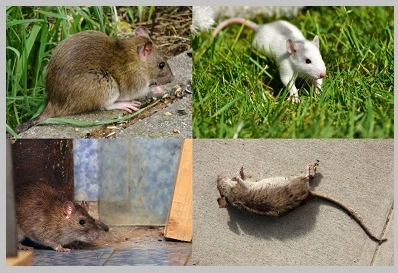- 5 Simple Tricks to Eliminate Maggots From Pet Waste - October 24, 2023
- Keep Your Outdoor Compost Piles Maggot-Free - October 24, 2023
- How to Get Rid of Maggots – Methods that Work - August 30, 2023
Are you a homeowner with a rat infestation? Do you worry that rats and other pests might be dangerous to your family’s health, but are unsure how to kill rats safely and effectively? You’ve probably heard of ammonia being used as an effective rodent repellent – but does it really work against rats, or is it just an old wives’ tale?
The short answer is yes, ammonia kills rats. It is a toxic substance that has been used for centuries in pest control and its unpleasant odor acts as a repellent to rodents like rats. Inhaling high concentrations of ammonia fumes for an extended period can be fatal for them.
In this blog post, we’ll investigate the truth behind using ammonia for rat removal – from what types of rodents it affects, to how successful such methods can be. Read on to find out if ammonia is an effective pest control choice in your home.
What is Ammonia and what are its properties
Ammonia gas is colorless with a distinctive, strong smell. It is a chemical compound made up of one nitrogen atom and three hydrogen atoms, with the molecular formula NH3. The colorless gas is highly soluble in water, which means it readily dissolves in it to form ammonium ions (NH4+) and hydroxide ions (OH-).
Liquid ammonia is commonly used in agriculture as a fertilizer and in industries, such as textiles and refrigeration, due to its excellent refrigerant properties. However, ammonia is also dangerous when inhaled in high concentrations, causing irritation to the eyes, nose, throat, and respiratory system.
Moreover, ammonium hydroxide is highly explosive when mixed with oxygen at concentrations ranging from 16% to 25% by volume. Therefore, it is vital to handle, transport, and store ammonia solution safely and efficiently.

Is ammonia a humane way to get rid of rats
When dealing with a rat infestation, it’s important to consider the most humane method of removal. While there are several options available, many people turn to ammonia as a solution instead of using rat poison you would buy over the shelf. However, it’s important to note that using ammonia to get rid of rats might not be the most humane choice.
Ammonia works by creating a pungent smell that is highly unpleasant to rats, causing them to avoid the area. While the strong ammonia odor may be effective in driving them away, inhaling high levels of ammonia can be dangerous to both humans and animals. There are more humane options available, such as live trap release, that can effectively remove rats without exposing them to harm.
Rats also have a strong sense of smell which could alarm them to the danger of ammonia. Ultimately, it’s important to consider all options and choose the method that is not only effective but also the most humane for everyone involved.
How to use ammonia as a rat repellent
Ammonia can be a highly effective rat repellent when used correctly. To use it, you should mix one part ammonia with one part water and place the solution in a spray bottle. Then, use the ammonia spray in areas where rats are known to gather, such as around trash cans, in dark corners, and near entry points to your home.
You can also soak cotton balls in ammonia and place them in affected areas. The strong scent of ammonia mix will discourage rats from entering these areas. However, it’s important to note that ammonia can be harmful to humans and animals if not used properly. Be sure to wear gloves and protective eyewear when handling the solution, and avoid spraying it in areas where it might come into contact with food or dishes.
By following these guidelines, ammonia spray can be a safe and effective way to use you own homemade rat poison to keep rats out of your home.
What are other ways to repel rats apart from using ammonia?
Rats can be a huge nuisance in homes and businesses, and while ammonia is one way to remove of them, there are other methods worth considering. Traps, for example, can be an effective way to catch and remove rats without the need for toxic chemicals and traditional rat poison. It’s important to choose the right type of trap and place it in the optimal location.
Another option is to seal off entry points and remove food sources, as rats will often leave if they can’t find a way inside or access to food. Natural remedies like peppermint oil, peanut butter balls and ultrasonic sound devices may also be worth exploring as additional ways to deter rats from entering and staying in a location.
Overall, it’s important to take action as soon as possible to prevent a small rat problem from turning into a larger infestation.
Is there any risk in using ammonia against rats
Ammonia has been a popular choice among homeowners for keeping rats away and as a homemade rat poison. However, there are risks associated with using this solution. It is a toxic gas that can be harmful to humans and animals, especially when inhaled in large quantities or if a person were to accidentally ingest ammonia.
It can cause respiratory problems, irritation in the eyes, nose, and throat, and even damage to the lungs. Moreover, using ammonia alone may not be enough to repel rats entirely, as these rodents can adapt to the smell and continue living in the same area. If you plan to use ammonia as a rat repellent, taking necessary precautions to minimize the risks and seeking professional advice for a more effective solution is essential.
In conclusion, ammonia can be a powerful and effective tool to kill rats. While the pungent smell of ammonia is strong enough to repel them, safety measures should always be kept in mind while handling the chemical. Although it might not always work as expected, there are other ways to tackle rat activity like exterior sealing and traps if things go wrong.
Ultimately, using ammonia for rat problems can have both potential benefits and risks; use caution when opting for this route. If you find that rodents are still bothering your home and threatening your well-being despite an attempted usage of ammonia spray, you should promptly call your local pest control expert or rat exterminator. Best of luck in getting rid of your furry neighbors!
